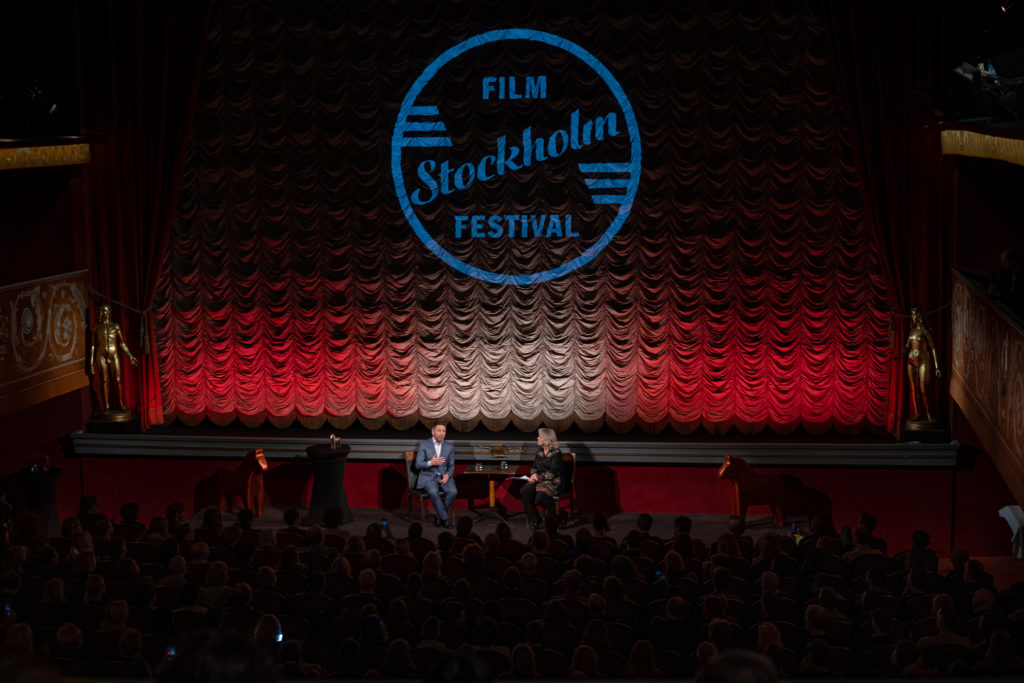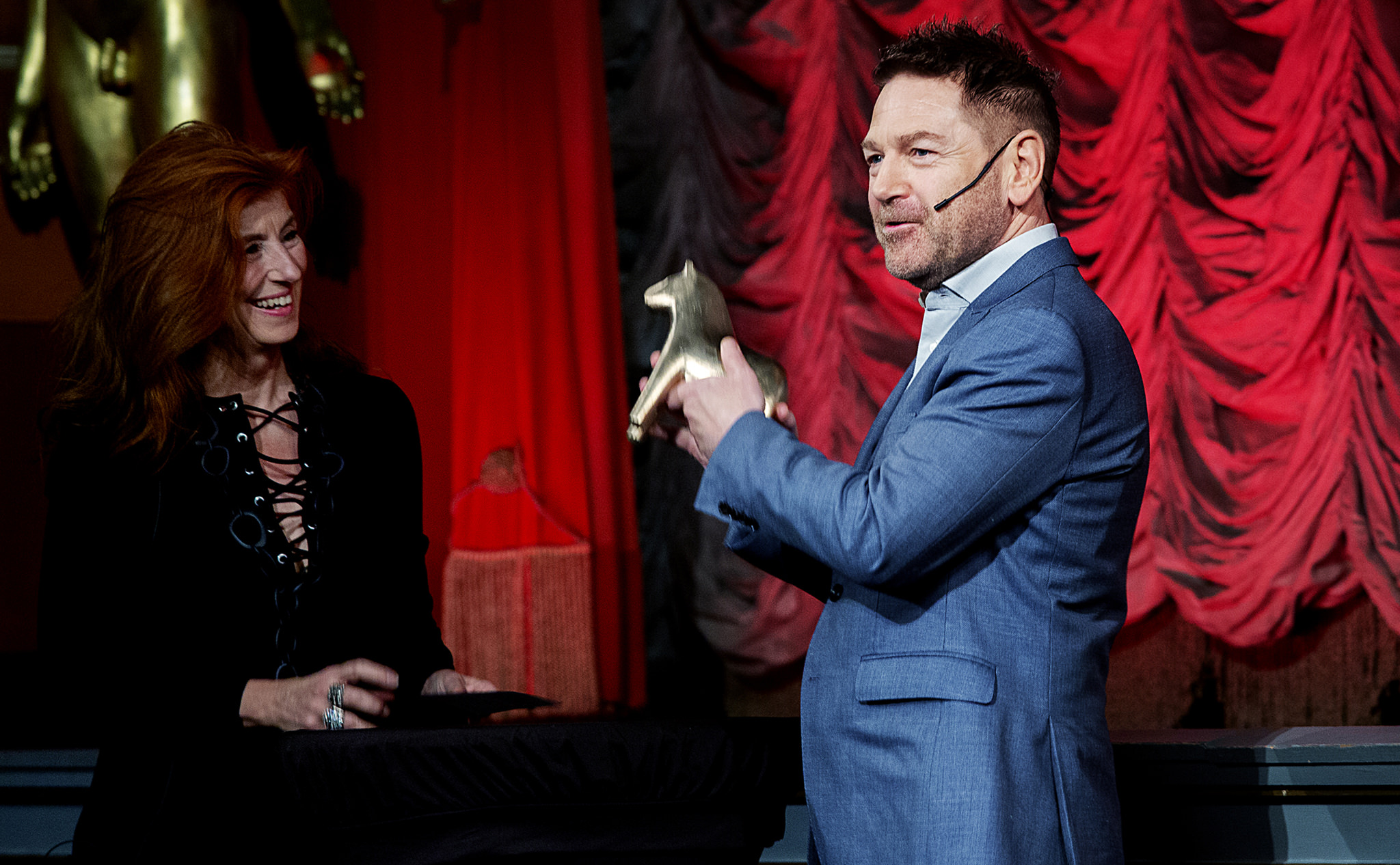The 2021 Stockholm International Film Festival concluded with a screening of Belfast and a Face2Face discussion with the film’s writer and director Kenneth Branagh. Git Scheynius, the Festival Director, also presented Branagh with the Stockholm Achievement Award, which he warmly accepted.
In discussing Belfast – a memoir based on a specific chain of events in 1969 – Branagh noted that the film explores the loss of innocence and the end of childhood, phenomena experienced in myriad ways by all human beings. For Branagh, however, the end of childhood was brought about by a particular moment of violence in which he “felt like the world was being shaken up.”
Belfast is set during the Troubles, a sectarian conflict between Catholics and Protestants that plagued Northern Ireland from the late 1960s until 1998’s Good Friday Agreement (although it would be inaccurate to say that tensions have fully disappeared today). With humor and sadness, the film tells the story of a family navigating the struggles of daily life as the world around them falls apart. Branagh is conscious that his family’s story is one among many, and the film pays tribute to the thousands of lives lost and communities torn apart by the Troubles.“There’s a line in the film, you’re either with us or against us,” Branagh said, noting that the tribalism and polarization underscoring that way of thinking are not uncommon today in many parts of the world.

In addition to Belfast, Branagh also discussed his extensive work with Shakespeare’s canon. His philosophy for presenting Shakespeare? “Be direct and let it speak to people as it spoke to me.” When considering the divide between Shakespeare and people’s reception of Shakespeare, Branagh said that his goal is to “make Shakespeare as available to (the audience) as it was to me.” As for his views on filmmaking, Branagh stated that he “make(s) films for audiences,” and that it thrills him to know that his films speak to other people.
The surreal nature of being able to attend a movie in a full theater and listen to the film’s director in-person in the midst of a pandemic was likely not lost on anyone in the audience. Branagh mentioned how the pandemic had in fact served as a catalyst for the creation of Belfast, how in the stillness and strangeness of lockdown, a story he’d been wanting to tell for 50 years came pouring out of him as an “uncensored piece of work.” The story of a crisis he wanted to be “raw and unfiltered” was, to his mind, born in the thick of another crisis. “I really listened (to myself) and wrote down what I heard,” Branagh said.
It may seem like simple advice, but it’s really quite radical. Actually listening to that voice inside.












